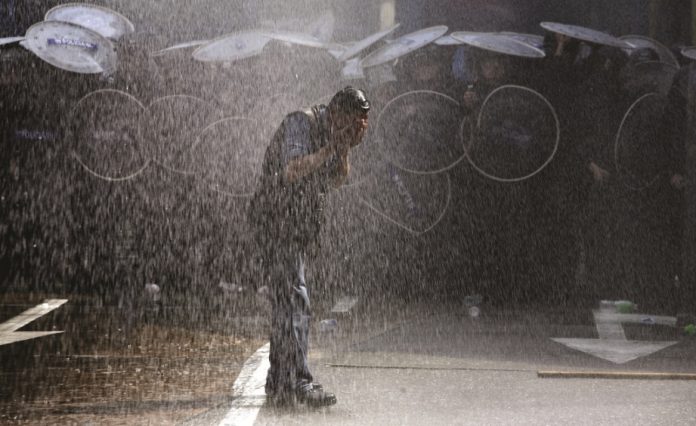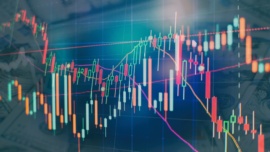Just 400 Macau residents will choose the next Chief Executive on the 25th; the MSAR political system has several peculiarities that create a problem right away: so how to describe it?
MB Aug 2019 Special report | The most imperfect democracy
One of the tasks of this special report is to make this characterisation.
Another is to see if the idea of universal suffrage is possible in a space with the characteristics (social and economic) of Macau – the reader will find not one but several answers.
The last political reform happened in 2012. For how many more years will life go unchanged? And what kind of changes can we expect?
The answers we seek also touch upon the Hong Kong experience; after all, if the 2014 protests on proposed reform in the neighbouring region catches up with Macau we will have to wait and see what impact the June events have here.
One answer is evident straightaway: it will be more difficult for Macau to become a World Centre of Tourism and Leisure without deepening its democratic expression.
If not democracy, then what?
We asked several scholars to take a snap photo of the democracy that exists in Macau.

“Macau is moving in this direction very slowly”
“The definition of democracy is not value-free. If it is defined in the Western sense of having checks and balances and election of top political leaders by electorates through direct voting then Macau is not a democracy.
“But if democracy is defined as any political system moving towards accountability, government responsiveness, citizen participation and constitutional reform, Macau is moving in this direction very slowly. The question of a hybrid regime is tricky because every regime can be seen as a hybrid of something, and hence the term hybrid cannot describe political changes in a dynamic manner, I’m afraid.
“As such, Macau is not a Western-style democracy but we can argue that it is a sort of Chinese democracy moving towards a limited degree of openness, responsiveness and accountability”
(Sonny Lo, to Macau Business)
“Relatively obsolete political system”
“The political development of Macau, which is proceeding gradually, is reflected in the mismatch between the politically active masses and the relatively obsolete political system. Moreover, numerous external and internal constraints continue to impede the full democratisation of Macau. The situation is further exacerbated by conservatism, egoism, inadequate political reform and self-serving political calculations.
“The business community – who enjoy a close relationship with the government, and the powerful pro-Beijing intermediary groups – both aim to preserve the more authoritarian bureaucratic polity of ‘colonial’ Macau and do not want to see any disruptive changes. Nonetheless, in recent years, political efforts to increase the level of democracy in Macau have begun to be fostered from below.
“Although the expanded Legislative Assembly has not become more representative it has stimulated mass participation and the pro-democracy movement in Macau. The strong Chinese cultural-politico identity of the ruling elites and the masses has contributed to the relatively weak political discourse on democratisation. (. . . ) Opinion surveys show Macau people have become more supportive of democratic values. Informal politics has not enhanced but corroded the democratisation of Macau.
“Social groups do not encourage mass political participation in a regular and lawful way. The overdependence of the Macau leadership on informal politics has not reduced the level of social conflict in Macau; on the contrary, it has widened the social cleavages.”
(Yufan Hao, Li Sheng and Guanjin Pan; excerpts from Political Economy of Macau since 1999 – The Dilemma of Success, 2017)

“Ethics and political culture remain largely traditional, conservative and informal”
“The evolution of political culture in the Macau SAR reflects a society undergoing a postcolonial transformation. Although the island city has a number of Western-style formal democratic institutions, the ethics and political culture within the administrative system remain largely traditional, conservative and informal.
“Behind the seemingly democratic polity lies a more traditional practice of informal politics amid a distorted electoral contest that represents nepotism, autocracy and strong inertia to not be democratic.
“Furthermore, Macau continues to face the dilemma whereby informal practice helps maintain a superficial social harmony and smooth policy implementation, but imprecise and inefficient formal institutions and regulations and over-dependence upon somewhat corrupt informal institutions have begun to undermine the legitimacy of the SAR Government.”
(Edmund Li Sheng, The Transformation of Island City Politics: The Case of Macau, 2016)
“Public understanding of democracy remains limited”
“Despite the fact that the level of participation in elections and protests has risen since the handover, public understanding of democracy remains limited. Surveys suggest that Macau people retain a traditional Chinese concept of democracy – for a government that consults people’s views rather than identifying with the Western idea of a democratic government elected by citizens under checks and balances”
(Malte Philipp Kaeding, in Post-Colonial Macau’s Changing Identity, 2014)
“The government needed to solicit input from the public through the proxy of interest groups”
“After the handover, Beijing had a vested interest in enhancing the legitimacy of the Macau SAR Government, maintaining the city’s prosperity and convincing the outside world of the principle of ‘One country, two systems’. Therefore Beijing encouraged interest groups to assist the new regime and refrain from criticising it.
“The undemocratic political system made interest groups with extensive grassroots support more indispensable to the SAR Government, requiring a higher degree of representation in policy input. Given that the political system was semi-closed, the government needed to solicit input from the public through the proxy of interest groups.
“The undemocratic formation method of the Legislative Assembly further strengthens interest groups’ political prowess. On top of the political privileges, many interest groups received government subsidies to finance their activities”
(Bill K. P. Chou; excerpts from Interest Group Politics in Macau after Handover, 2005)

“Resemblance of a democratic structure of governance”
“As one of China’s SARs, Macau constitutionally enjoys independent legislative, executive, and judicial power from Beijing. However, it is a place characterised by the population’s general political indifference, lack of political dialogue, and imbalance of power at policymaking level.
“Despite the appearance of a separation of powers, and a resemblance of a democratic structure of governance, the actual governing of the territory is strongly Executive-led and concentrated in the hands of the core beneficiary group. The Chief Executive (. . .) is not only the top government official but also the leader of Macau’s political system as a whole, enjoying authority above the legislative and judicial body”
(Li Sheng and Yanming Tsui, Casino Booms and Local Politics: The City of Macau, 2009)
“Still far from achieving full democracy”
“Macau can be regarded as an interesting case of a hybrid regime. During the colonial era, the Portuguese Administration designed a liberal authoritarian regime in Macau; After the handover, the political system of the MSAR largely continued the style of liberal authoritarianism.
“On the one hand, various civil liberties were guaranteed under the Basic Law, the post-handover constitution, governing Macau after its retrocession to China. On the other hand, although democratisation has developed since the mid-1980s Macau is still far from achieving ‘full democracy’ because of its limited electoral franchise. (. . .)
“It can be argued that Macau is fundamentally a liberal authoritarian regime featuring some electoral authoritarian elements.”
(Ying-ho Kwong, excerpts from Ruling Coalition Restructuring under Macau’s Hybrid Regime, 2017)
























